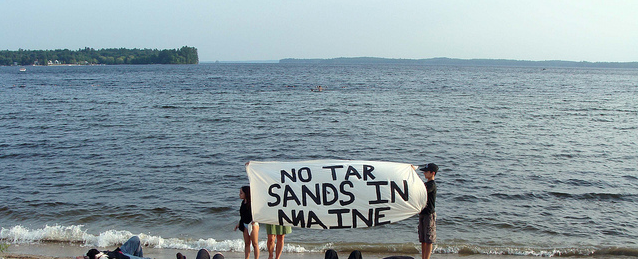The climate movement aims to create a political culture in which climate action is a matter of political necessity. This kind of true political change is a bottom-up process. It starts at the local level, evolves to the national level, and bursts forth onto the international stage. The upcoming 21st UN Framework Convention on Climate Change Conference (UNFCCC) of the Parties (COP21), which begins on November 30th in Paris, shows that we are still a long way from securing political systems that view climate action as political necessity. While international coordination is essential to address the climate crisis, there is an opportunity after COP21 to reengage in the local and build a solid, broad-based, powerful political movement that begins in communities and can ultimately impact the halls of the UNFCCC.
COP21 represents one of humanity’s last opportunities to develop a legally binding agreement for global emissions reduction. Despite the tragic attacks in Paris last week, thousands of people—from youth to frontline communities to faith leaders—will still travel to Paris. They will unite voices in the call for just and equitable climate action.
Yet it looks like no treaty will emerge from Paris. Secretary of State John Kerry said that there will “definitely not” be a binding agreement. Christiana Figueres, the UN climate chief and highest-ranking climate-change expert in the UN, warned that any agreement in Paris would not include a global price on carbon. Civil society organizations talk about “road through Paris” to avoid crushed hopes. There is no doubt that COP21 is historic and provides an opportunity for mobilization, action, and passion. But the political will for the climate policy needed to address this crisis is not in the negotiating rooms.
It’s easier to understand the lack of nations’ commitment on the international level when you examine climate action at home. In the United States, for example, Republicans desperately try to thwart Obama’s negotiation position for COP21. They not only oppose any kind of agreement at COP21—they are also blocking much needed aid to countries that are on the frontlines of global warming. The US Senate also voted this week to block President Obama’s historic Clean Power Plan in a further effort to weaken the United States’ ability to lead at COP21.
How did the US end up with a Congress that is so opposed to climate action? There are many answers to this question, including outsized corporate influence. Another answer is that national political failures reflect a lack of engagement on a local level. The climate movement doesn’t yet have the kind of voting base that ushers in a new era of political climate action. So local elected officials—for example, like those in New England—can collude to expand natural gas infrastructure in the region. The importance of local politicians was reinforced in a recent study: “strong political will among local officials to act on climate change was the most important factor that affected a city’s ability to plan [for climate change].” Deep political change begins with each of us, in our communities, in our states.
But the tide is turning.
For every attack on climate policy, there is a community rising up to take its future into its own hands. For example, Portland, Oregon recently passed historic climate legislation banning all new fossil fuel infrastructure in the city. This policy is the boldest in the country and provides a just transition for workers in the fossil fuel economy. Now Portland is a model city for climate resilience. More and more cities commit to 100% renewable energy. Others—like South Portland, Maine—use political tools to prevent fossil fuel development at home.
The challenge is to spark this kind of local political resistance in every corner of every state in this country. Only then can we create the kind of personal engagement that can influence national politics. When our local power transforms our national power, then we can lead strong and ambitious international policy. This is the kind of bottom-up political change that we need to protect all that we love.
In unprecedented times, we confront unprecedented opportunities. We all have an opportunity after COP21: to go home, engage with our communities, and build an unstoppable groundswell of political momentum that will shake politics from mayors to international negotiators. That is the vision of political necessity.


